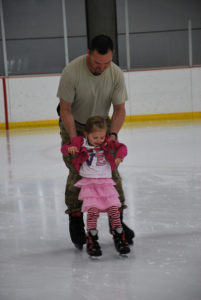Premarital Counseling for Today’s Generation
Many couples are reflecting on how 2020 went for them and wondering how 2021 will treat them. We noticed a boom of weddings in 2020 despite the pandemic. This encouraged many to get engaged and to hopefully get married in 2021. We may wonder why people are getting married, and it could be as simple a matter as singles and dating couples being tired of living alone. If you’re navigating relationship decisions, Huntington Beach Christian Counseling can help you navigate relationship decisions and strengthen your commitment.
 The pandemic has brought many issues to the surface such as depression due to constant isolation and anxiety when alone. Autophobia is the fear of being alone and is especially difficult the older you are. Undoubtedly families and couples did better than singles while being left alone for such a long time during the pandemic.
The pandemic has brought many issues to the surface such as depression due to constant isolation and anxiety when alone. Autophobia is the fear of being alone and is especially difficult the older you are. Undoubtedly families and couples did better than singles while being left alone for such a long time during the pandemic.
Although some took the risk of going out during the outbreak, many had no option but to stay at home out of concern for a loved one. This woke up many men and women to consider moving forward with their partners toward marriage. This is a noble solution to the problem of being alone. Wisdom would say that although it’s great to get married, we must build solidly to have a long-lasting marriage.
As a minister, I notice that couples in our church tend to rush into marriage but many, if not all, of these couples wisely seek advice. The pandemic is causing doubts and questions for possible weddings of 2021 such as financial costs, wedding attendance, where to live, school, jobs, family distance, etc.
A blessing in disguise of the pandemic is that it is helping couples to work through these issues with others, which is helping them to count the cost of moving forward.
Suppose one of you wants to build a tower. Won’t you first sit down and estimate the cost to see if you have enough money to complete it? For if you lay the foundation and are not able to finish it, everyone who sees it will ridicule you, saying, ‘This person began to build and wasn’t able to finish.’ – Luke 14:28-30
These couples cannot afford to put up money for a big wedding, and they are wondering where to live because, if the pandemic extends, they want to know could they be safe, and what is around them in walking distance i.e., parks, beach, trails, stores, etc. With this in mind, partners are asking one another about pre-marital counseling.
Premarital counseling is a foundational precursor to a healthy marriage because we tend to invest in what’s important to us. The passage in Luke helps us to consider how we are building. Couples aren’t just “fools rush in”, there is an alternative that can support a stronger relationship that will remain resilient during challenging times.
 Sadly, many couples also ended their relationship in 2020 because the pandemic tested them beyond their capabilities and forced them to tap out. Couples’ characters were exposed and with the added pressures of isolation, they had no one to turn to. These marriages had little to no support that otherwise could have been of immense help.
Sadly, many couples also ended their relationship in 2020 because the pandemic tested them beyond their capabilities and forced them to tap out. Couples’ characters were exposed and with the added pressures of isolation, they had no one to turn to. These marriages had little to no support that otherwise could have been of immense help.
The question is, why didn’t these couples have support? We could chalk it up to many possibilities, but one vital reason could be that it wasn’t discussed at their premarital counseling. We all have friends, but we don’t turn to them to get input especially about sensitive material as insecurities, sexual intimacy, conflict, jealousy, deceit, secrets, etc.
If adequate support is not set up in advance this challenge can be difficult to overcome. We all need support to move forward in life. We all appreciate the heroic stories of individuals, but the most encouraging ones are the teams of heroes that show everyone’s strengths and weaknesses.
The Avengers, Justice League, and Star Wars are all some of the biggest box office hits in the last decade. The reason for their success is that they are teams fighting off a great evil. These have become bigger revenue-generating franchises and have overtaken the individual hero’s place as top of the box office king. Why do we have less enthusiasm about being a team in our marriages? Marriage is a perfect opportunity to be a team and have others team up to helps us.
Two are better than one,
because they have a good return for their labor:
If either of them falls down,
one can help the other up.
But pity anyone who falls
and has no one to help them up.
Also, if two lie down together, they will keep warm.
But how can one keep warm alone?
Though one may be overpowered,
two can defend themselves.
A cord of three strands is not quickly broken.
– Ecclesiastes 4:9-12
 This is an interesting passage for couples because if my partner and I are one then who is going to help our one unit? Some may suggest that spouses are the other individual to help them out, but we can challenge that position by reminding everyone of the goal that God designed in Genesis 2:24 “the two will become one.”
This is an interesting passage for couples because if my partner and I are one then who is going to help our one unit? Some may suggest that spouses are the other individual to help them out, but we can challenge that position by reminding everyone of the goal that God designed in Genesis 2:24 “the two will become one.”
By that principle, a couple who follows the word of God is one unit. The secret of Christian marriage is that we get to celebrate two lives joined together in holy matrimony, yet they are not alone. In the kingdom of God, we have support and guidance to face any issue. Marriages should never be alone. As separate individuals, we can support one another and maximize the potential of our unions.
2021 is going to be a full year of many couples dating, getting engaged, then married. Families will begin and many joyous occasions will take place. During those moments there will be stress and anxiety and one way to combat those symptoms will be to get premarital counseling as soon as possible.
First, dating or engaged couples can jumpstart their long-term relationship by investing in a healthy premarital counseling series so that they can develop a great foundation to make their marriage strong. Second, they can develop a support network. If they do these two crucial things, along with reading their Bible and praying every day, then they can have confidence that will stay together for the long haul.
If for some reason their church, ministry, friends, or community cannot provide that, then therapy can be a great alternative. Marriage and Family therapists are trained in basic approaches that can help couples in their relationships hence the title “marriage” therapist. Some may say that therapy is too pricey and could take up a lot of your time. An argument can be made that investing in your relationship is priceless.
When I married Nicole, there was no price too high to pay for the ring, wedding, and honeymoon. We had a budget of course, but my attitude was that I wanted to invest in the things I thought were important to me. Where we put our money shows where we are invested.
My advice to those of you reading this article is that if you are considering getting married soon, think about possibly getting premarital counseling through a therapist who will be impartial and professional. Sometimes our friends and family can mean well when it comes to giving us premarital advice but at times that can have some biases attached with it.
A professional therapist is trained to be in the middle and not side with either partner. The licensed marriage and family therapist will work with both individuals to help bring issues to light that could be of concern and to build skills to help them navigate expectations for the future.
 Having a healthy dynamic marriage is priceless. I look back to when Nicole and I got premarital counseling and I shudder to think what would be said of us right now if we had never invested in our relationship after our engagement. In truth, our marriage would be a nightmare.
Having a healthy dynamic marriage is priceless. I look back to when Nicole and I got premarital counseling and I shudder to think what would be said of us right now if we had never invested in our relationship after our engagement. In truth, our marriage would be a nightmare.
I’m grateful that others supported me and helped me to learn ways to communicate effectively, how to plan out my week with my wife, prioritizing biblical values, sexual intimacy, reconciliation, daily encouragement, effective roles, letting go of past hurts, submitting to one another, listening, finances, etc. Many couples get married and do not talk about these issues.
It is no wonder that couples have so many arguments. They approach their relationship with optimism but then they hit a snag after the vows. When conflict arises, they realize that they didn’t prepare for these issues and are shocked when they have no one to turn to. They want to save face, so they keep it “in-house”. They go to church and pretend that everything is fine.
Deep down, however, they are yearning for help so that they can grow. This piece is written for those looking forward to getting married this year but honestly, anyone can get counseling at any point in their relationship. It’s an investment that will reap long-lasting rewards. One spouse can go alone, although it is highly recommended that both attend. For guidance, Christian Counselors at Huntington Beach Christian Counseling is here to help couples strengthen their relationships.
If the couple is healthy, and one spouse wants to process a trauma from their past, then that one spouse should get therapy and may not need to include the other. If the conflict affects both, then both should attend to get therapy. Premarital counseling will prepare the couple so that they will not be blindsided by any potential threats.
Athletes say that the worst hit they take on the field is the one they don’t see coming. With premarital counseling, not only will you be ready for those challenges, but you will also be ready to confront them. Not only will you be ready to confront them but be victorious as a wonderful team. I close out with an encouraging analogy from Jesus on how to build our spiritual homes:
Therefore, everyone who hears these words of mine and puts them into practice is like a wise man who built his house on the rock. The rain came down, the streams rose, and the winds blew and beat against that house, yet it did not fall, because it had its foundation on the rock. But everyone who hears these words of mine and does not put them into practice is like a foolish man who built his house on sand. The rain came down, the streams rose, and the winds blew and beat against that house, and it fell with a great crash. – Matthew 7:24-27
“Rings”, Courtesy of Nick Karvounis, Unsplash.com, CC0 License; “Love & Respect”, Courtesy of Kelly Sikkema, Unsplash.com, CC0 License; “Holding Hands”, Courtesy of Brooke Cagle, Unsplash.com, CC0 License; “Devotions Together”, Courtesy of Priscilla Du Preez, Unsplash.com, CC0 License

 Think about the following: fame, fortune, popularity, success, power, family, and so forth. Why do we want all these things? We want them because we want to be loved. Maybe we won’t admit it but at the end of the day, we work hard because we are searching for that endless love. There are some interesting proverbs in the Bible that support this.
Think about the following: fame, fortune, popularity, success, power, family, and so forth. Why do we want all these things? We want them because we want to be loved. Maybe we won’t admit it but at the end of the day, we work hard because we are searching for that endless love. There are some interesting proverbs in the Bible that support this. Another possibility is that maybe you or someone who is in an emotional affair and you’re wondering if you’ve gone too far. This article interested you because you are at a crossroads in your relationship, and you may have ventured out of the boundaries in an emotional relationship and now you are contemplating on what you are going to do.
Another possibility is that maybe you or someone who is in an emotional affair and you’re wondering if you’ve gone too far. This article interested you because you are at a crossroads in your relationship, and you may have ventured out of the boundaries in an emotional relationship and now you are contemplating on what you are going to do. Adultery doesn’t just happen, it evolves, and these scriptures point out that it started within us. It could be why in the gospel it says that the most important commandment is to love our Lord with all our Heart, Soul, Mind, and Strength. God wants all of us. He doesn’t accept partial love.
Adultery doesn’t just happen, it evolves, and these scriptures point out that it started within us. It could be why in the gospel it says that the most important commandment is to love our Lord with all our Heart, Soul, Mind, and Strength. God wants all of us. He doesn’t accept partial love. This approach is excellent for those who have been hurt by emotional infidelity because they feel the pain of being betrayed. They can explore those feelings and realize past trauma tied into the current hurt. The process continues as to what they are thinking and possible actions they can take to empower themselves. This is one of many possible approaches but in my work with hundreds of clients, I can’t think of a better approach.
This approach is excellent for those who have been hurt by emotional infidelity because they feel the pain of being betrayed. They can explore those feelings and realize past trauma tied into the current hurt. The process continues as to what they are thinking and possible actions they can take to empower themselves. This is one of many possible approaches but in my work with hundreds of clients, I can’t think of a better approach.
 Marriage is God’s invention, and because it is God’s intention that it be permanent, you should feel compelled to make the effort to save it. Many divorces occur because people didn’t seek help when they needed it but tried to do it solely on their own. As God’s Word says, “Without consultation, plans are frustrated, but with many counselors, they succeed” (Proverbs 15:22).
Marriage is God’s invention, and because it is God’s intention that it be permanent, you should feel compelled to make the effort to save it. Many divorces occur because people didn’t seek help when they needed it but tried to do it solely on their own. As God’s Word says, “Without consultation, plans are frustrated, but with many counselors, they succeed” (Proverbs 15:22). Though it may seem simplistic, probably the best way to identify a trusted counselor is through word of mouth. Who have others used? Who do they recommend?
Though it may seem simplistic, probably the best way to identify a trusted counselor is through word of mouth. Who have others used? Who do they recommend? It is a good idea to take advantage of any free consultations over the phone prior to meeting with a counselor in order to get to know them a little bit and get a feel for whether the counseling relationship is likely to work out. This gives you the liberty to ensure that you are comfortable with this counselor before you commit to anything long-term.
It is a good idea to take advantage of any free consultations over the phone prior to meeting with a counselor in order to get to know them a little bit and get a feel for whether the counseling relationship is likely to work out. This gives you the liberty to ensure that you are comfortable with this counselor before you commit to anything long-term. Trust is having confidence in someone and believing that he or she will love you forever and is always going to remain loyal. Trusting people is difficult because it means you need to believe that you are able to depend on them and feel comfortable with them to the point where you are okay with confiding in them and letting them see you in a vulnerable state. Trust acts as a key component for the foundation of any kind of relationship.
Trust is having confidence in someone and believing that he or she will love you forever and is always going to remain loyal. Trusting people is difficult because it means you need to believe that you are able to depend on them and feel comfortable with them to the point where you are okay with confiding in them and letting them see you in a vulnerable state. Trust acts as a key component for the foundation of any kind of relationship. The following list contains steps that can help partners find ways of gaining trust in their relationships. This list does not need to be followed in order but each item should be included in an ongoing pattern of communication within a relationship.
The following list contains steps that can help partners find ways of gaining trust in their relationships. This list does not need to be followed in order but each item should be included in an ongoing pattern of communication within a relationship. Mistakes in relationships are inevitable and going to happen. However, it is very possible to work towards repairing a damaged relationship and lead it towards healing. Both partners must be able to admit mistakes and be open to coming together to rebuild trust and work through their mistakes.
Mistakes in relationships are inevitable and going to happen. However, it is very possible to work towards repairing a damaged relationship and lead it towards healing. Both partners must be able to admit mistakes and be open to coming together to rebuild trust and work through their mistakes. Building trust takes intentionality and a lot of time and effort. It is never easy to establish trust and this is made even more difficult if some sort of betrayal has occurred.
Building trust takes intentionality and a lot of time and effort. It is never easy to establish trust and this is made even more difficult if some sort of betrayal has occurred. To really understand what this means, picture a little girl whose father is not around most of the time, is authoritarian, doesn’t show any interest in her recitals, and whose mother is there but is always preoccupied with her own personal issues.
To really understand what this means, picture a little girl whose father is not around most of the time, is authoritarian, doesn’t show any interest in her recitals, and whose mother is there but is always preoccupied with her own personal issues. To satisfy oneself sexually is not the only obvious payoff. Having an affair also tends to heal the wounded part of the self that encourages the behavior more than anything else. Another payoff is the thrill that comes with indulging in the forbidden actually building up the erotic energy in the relationship.
To satisfy oneself sexually is not the only obvious payoff. Having an affair also tends to heal the wounded part of the self that encourages the behavior more than anything else. Another payoff is the thrill that comes with indulging in the forbidden actually building up the erotic energy in the relationship. Both of these results are terrible and God wants something much better for us. The traditional marriage vows that say “to have and to hold, to love, honor and cherish, forsaking all others.” is already a great reminder for us to keep. If you or your spouse doesn’t feel loved, honored, or cherished, it’s best to take action right away, probably through the help of a counselor.
Both of these results are terrible and God wants something much better for us. The traditional marriage vows that say “to have and to hold, to love, honor and cherish, forsaking all others.” is already a great reminder for us to keep. If you or your spouse doesn’t feel loved, honored, or cherished, it’s best to take action right away, probably through the help of a counselor. Being married, whether you did it in a church or not, means you made a promise before God. He cares deeply about your relationship. Allow him to be in it. Ask for His help to love right, to be more forgiving, to fight your own selfishness, put up good boundaries, and be responsible for your own emotional struggles.
Being married, whether you did it in a church or not, means you made a promise before God. He cares deeply about your relationship. Allow him to be in it. Ask for His help to love right, to be more forgiving, to fight your own selfishness, put up good boundaries, and be responsible for your own emotional struggles. Perhaps they feel like their spouse doesn’t really know or love them. An affair offers the illusion of feeling desired, alive, and escaping from the mundane reality of everyday life.
Perhaps they feel like their spouse doesn’t really know or love them. An affair offers the illusion of feeling desired, alive, and escaping from the mundane reality of everyday life.  Even if your children don’t know what’s happening, they’ll sense the shaky foundation of your marriage. Your marriage should be the solid rock on which you can build your family. An affair cracks the foundation of the family, no matter what excuse you make for it.
Even if your children don’t know what’s happening, they’ll sense the shaky foundation of your marriage. Your marriage should be the solid rock on which you can build your family. An affair cracks the foundation of the family, no matter what excuse you make for it. People at church will also tend to be polarized by your illicit relationship. If you are a ministry leader or participant, you may be asked to step down as you deal with the fallout of your decision to commit adultery. Most people will likely side with your spouse, not you.
People at church will also tend to be polarized by your illicit relationship. If you are a ministry leader or participant, you may be asked to step down as you deal with the fallout of your decision to commit adultery. Most people will likely side with your spouse, not you. No one just wakes up one morning and arbitrarily decides, “I’m going to have an affair.” Most of us have internal inhibitions against cheating. What happens is that we take one seemingly harmless step at a time, and before we know it, we’re entangled in adultery.
No one just wakes up one morning and arbitrarily decides, “I’m going to have an affair.” Most of us have internal inhibitions against cheating. What happens is that we take one seemingly harmless step at a time, and before we know it, we’re entangled in adultery. When you make a conscious choice to seek help as a married couple, it signals a pivotal moment in your relationship. Though counseling will never be easy, it is the commitment to a better marriage that is the most crucial aspect of seeking additional assistance.
When you make a conscious choice to seek help as a married couple, it signals a pivotal moment in your relationship. Though counseling will never be easy, it is the commitment to a better marriage that is the most crucial aspect of seeking additional assistance. However, if one spouse has pressured the other into attending, and if they have absolutely no desire to be there, it can do more harm than good.
However, if one spouse has pressured the other into attending, and if they have absolutely no desire to be there, it can do more harm than good. If one of the individuals involved in the marriage is dealing with serious emotional trauma from before or during the marriage, their well-being must be prioritized. They may be going through something that requires individual therapeutic work.
If one of the individuals involved in the marriage is dealing with serious emotional trauma from before or during the marriage, their well-being must be prioritized. They may be going through something that requires individual therapeutic work. But it’s also possible that you may have some mixed feelings. Maybe you’re concerned about some things in your relationship and wonder how they’ll affect your future. It’s okay to be nervous or have reservations about making such a huge commitment.
But it’s also possible that you may have some mixed feelings. Maybe you’re concerned about some things in your relationship and wonder how they’ll affect your future. It’s okay to be nervous or have reservations about making such a huge commitment. It’s also good, although a little scarier, to discuss the insecurities you have related to who your partner is. Are there any red flags (even small ones)? These are the insecurities. What are the issues you desire to discuss but maybe feel uncomfortable bringing up?
It’s also good, although a little scarier, to discuss the insecurities you have related to who your partner is. Are there any red flags (even small ones)? These are the insecurities. What are the issues you desire to discuss but maybe feel uncomfortable bringing up? Will adoption or travel be a part of your future? What are your educational and vocational aspirations? What are your partner’s? Do you want to stay in your current geographical area indefinitely?
Will adoption or travel be a part of your future? What are your educational and vocational aspirations? What are your partner’s? Do you want to stay in your current geographical area indefinitely? These questions aren’t meant to discover a right or wrong answer, but simply to foster open communication in your relationship. The goal is to have an agreed-upon timeframe that will not make either partner feel overly rushed but will also not draw out the engagement far beyond what is desired.
These questions aren’t meant to discover a right or wrong answer, but simply to foster open communication in your relationship. The goal is to have an agreed-upon timeframe that will not make either partner feel overly rushed but will also not draw out the engagement far beyond what is desired. This disorder was labeled codependency. Discovering and defining codependency has led to the creation of treatment programs that work alongside addiction treatment. Professionals assess and treat family dynamics as well as the person struggling with addiction. Mental Health America defines codependency this way:
This disorder was labeled codependency. Discovering and defining codependency has led to the creation of treatment programs that work alongside addiction treatment. Professionals assess and treat family dynamics as well as the person struggling with addiction. Mental Health America defines codependency this way: “While the teachings of the codependency movement remain immensely helpful in dealing with family members who suffer from substance abuse (as was the initial intention), they can be misleading and even damaging when applied indiscriminately to all relationships.”
“While the teachings of the codependency movement remain immensely helpful in dealing with family members who suffer from substance abuse (as was the initial intention), they can be misleading and even damaging when applied indiscriminately to all relationships.” Attached proposes a more balanced approach than the common mental health emphasis on differentiation and emotional independence. Instead, the authors say we should acknowledge that we have an inherent need for attachment and dependence on our partners, and when this need is met, we will feel secure.
Attached proposes a more balanced approach than the common mental health emphasis on differentiation and emotional independence. Instead, the authors say we should acknowledge that we have an inherent need for attachment and dependence on our partners, and when this need is met, we will feel secure. They devote several chapters to explaining the nuances of the different styles and how you can identify which one describes you and which describes your partner. They also give examples of how different types of attachment look in real life, along with solutions for improving your relationship and resolving conflict.
They devote several chapters to explaining the nuances of the different styles and how you can identify which one describes you and which describes your partner. They also give examples of how different types of attachment look in real life, along with solutions for improving your relationship and resolving conflict.